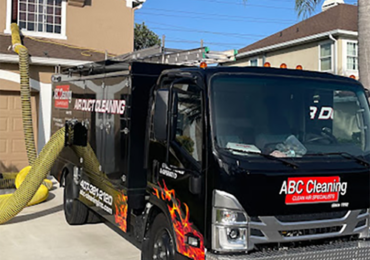What We Have Learned About Improving Indoor Air Quality Over the Decades
Understanding the Basics about Improving Indoor Air Quality
Indoor air quality (IAQ) has become a major concern over the past several decades. Fortunately, as more studies have been conducted, we’ve gained a clearer understanding of how indoor air affects our health and well-being. At ABC Cleaning Inc., we are dedicated to improving indoor air quality for homes in Cocoa, FL, and surrounding areas.
Historical Perspective
In the mid-20th century, indoor air quality was not a primary concern for most people. However, as buildings became more energy-efficient and airtight, concerns about IAQ began to surface. Also , early studies indicated that pollutants such as smoke, dust, and chemicals could accumulate indoors, leading to health problems.
Key Findings on Pollutants
Research over the years has identified numerous indoor air pollutants. Specifically, these include volatile organic compounds (VOCs), mold, pet dander, dust mites, and tobacco smoke. Furthermore, each of these pollutants can adversely affect health, especially in individuals with allergies or respiratory conditions.
According to the Environmental Protection Agency (EPA), indoor air can be two to five times more polluted than outdoor air. Consequently, this statistic underscores the importance of maintaining good indoor air quality.
The Role of Ventilation
Proper ventilation plays a crucial role in maintaining good IAQ. Over the years, studies have shown that inadequate ventilation can lead to higher levels of indoor pollutants. Ensuring that homes have adequate ventilation helps dilute and remove contaminants, improving overall air quality.
Advances in Air Filtration for Improving Indoor Air Quality
One significant advancement in the field of indoor air quality is air filtration technology. High-efficiency particulate air (HEPA) filters, for instance, have been shown to effectively capture airborne particles, including dust, pollen, and pet dander. Installing HEPA filters in HVAC systems can significantly improve IAQ.
The Impact of Humidity
Humidity levels also affect indoor air quality. High humidity can promote mold growth and dust mites, while low humidity can cause respiratory irritation. Research indicates that maintaining indoor humidity levels between 30% and 50% can help reduce these issues.
Understanding Sick Building Syndrome
In the 1980s, the term “sick building syndrome” (SBS) emerged to describe situations where building occupants experienced health problems linked to time spent in the building. Symptoms included headaches, dizziness, and respiratory issues. Studies revealed that poor indoor air quality, inadequate ventilation, and chemical contaminants were often the culprits.
The Importance of Regular Maintenance for Improving Indoor Air Quality
Regular maintenance of HVAC systems, air ducts, and other components is vital for good IAQ. Over time, dust, mold, and other contaminants can accumulate in these systems, reducing their efficiency and contributing to poor air quality. Cleaning and maintaining these systems helps ensure they operate effectively and provide clean air.
Did you know that people spend about 90% of their time indoors? This fact highlights the critical importance of maintaining good indoor air quality to protect our health.
Modern Solutions for Improving Indoor Air Quality
Today’s technology offers several solutions for improving indoor air quality. Air purifiers, for instance, can remove contaminants from the air, providing a healthier environment. Additionally, smart home systems can monitor air quality in real-time, alerting homeowners to potential issues.
The Role of Green Building Practices
Green building practices have also contributed to improved IAQ. These practices focus on using materials that emit fewer VOCs, ensuring adequate ventilation, and incorporating natural light. Homes built with these principles often have better indoor air quality.
For more information on indoor air quality and how to improve it, check out these quality resources:
- Environmental Protection Agency (EPA)
- Centers for Disease Control and Prevention (CDC)
- American Lung Association
Conclusion
ABC Cleaning, Inc. | Air Duct Cleaning Orlando
Serving Central Florida since 1992, ABC Cleaning, Inc. has been the acknowledged leader in air duct cleaning, chimney cleaning, and dryer vent cleaning. We’re NADCA certified, we consistently invest in and have the most modern equipment, and utilize the latest technology available with the best-trained service technicians in all of Orlando. If you need help deciding whether to replace or repair faulty ducts, please contact us at ABC. We provide quality HVAC service throughout Orlando and the surrounding communities.



